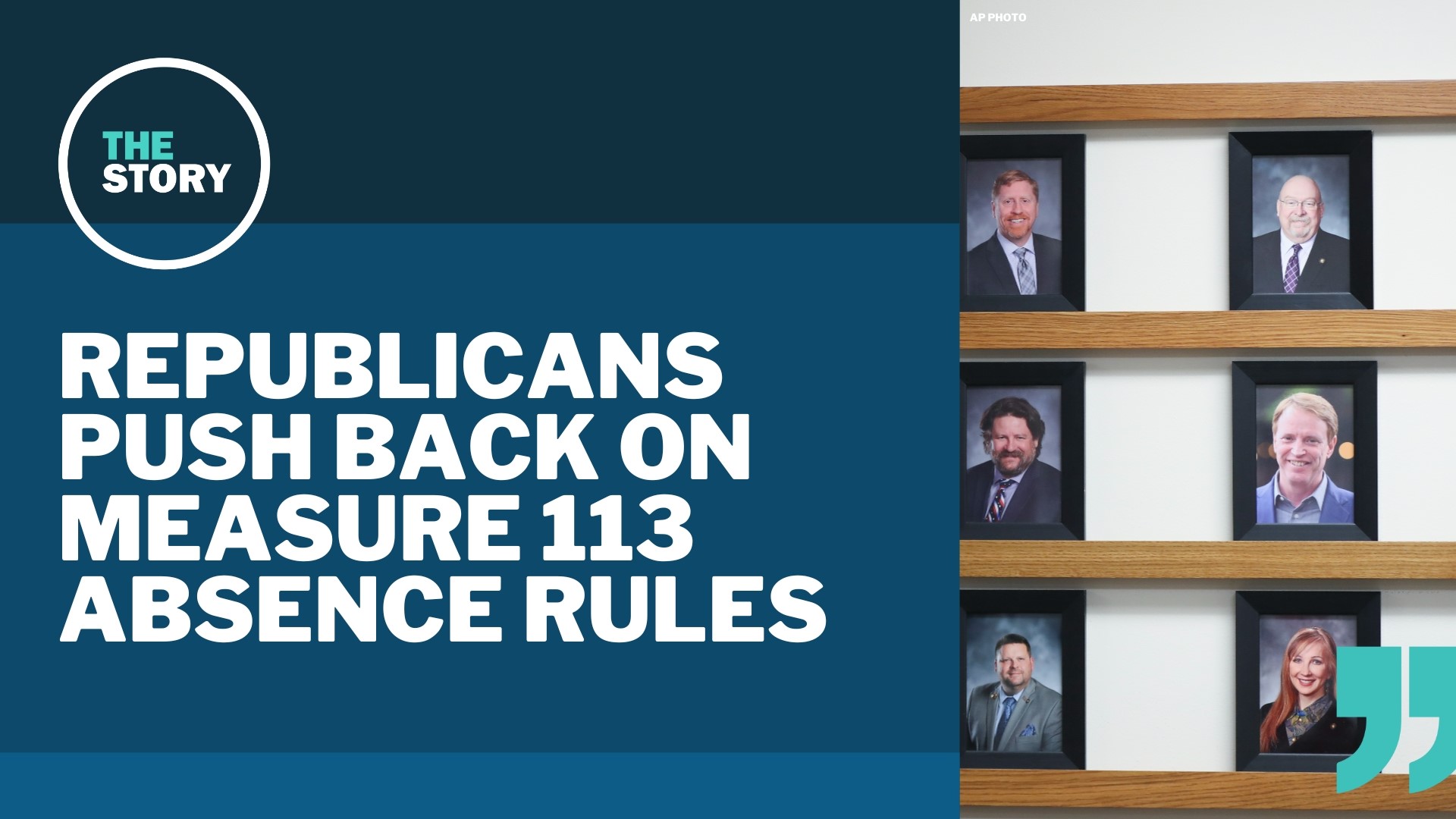PORTLAND, Ore. — Late on Monday, a group of Oregon Senate Republicans announced their plans to run for re-election, despite the fact that some of them ran afoul of a voter-approved measure during this year's legislative walkout that bars them from holding office next term.
State senators Tim Knopp and Dennis Linthicum each participated in the Senate Republican walkout that held up business in the chamber for a record six weeks, and each exceeded 10 unexcused absences. Under Measure 113, passed overwhelmingly by voters in November 2022, this means that they are disqualified from serving in the same seat in the coming term.
Regardless, Senate Republicans have said that they plan to test the law, taking it to court if they have to. First, Knopp said that he's asking Oregon's new Secretary of State for a ruling on their eligibility to run.
"Well, the Secretary of State is, I think, considering a declaratory ruling on whether or not we can have ballot access for those who have gone past the 10 unexcused absences that the Senate President was solely in charge of doing," Knopp said. "And so we are hopeful that the secretary will make a ruling in the very near future."
Knopp said that they hope to have an answer in the next few weeks. The Secretary of State's office said only that they are "reviewing the matter."
When asked if he regrets walking out and putting his political career at risk, Knopp said he stood by the decision.
"I think it was the right decision to walk out. I think it was the right decision to come back to a deal that the Democrats said that they wouldn't negotiate. In fact, they did, and we do appreciate that," he replied. "But what was done with the unexcused absences were arbitrary and capricious and retaliatory. And so we think if the people actually knew what was going to happen before they voted on Measure 113, I don't think they would voted for it."
There was little secret in the run-up to the November 2022 election that Measure 113 was intended to do precisely this, defanging walkouts by instituting a significant political cost.
Under the Oregon Constitution, each chamber of the legislature must have a two-thirds majority present in order to reach a quorum and conduct floor votes. By avoiding roll call, lawmakers from both parties have in the past successfully denied a quorum and halted business, despite being in the minority, in order to lodge a protest and gain leverage.
Once a relatively rare tactic, minority Republicans have weaponized Oregon's quorum rules in recent years — staging walkouts in 2019, 2020, 2021 and 2023.
Oregon voters could, via ballot measure, amend the state constitution to change the quorum to a simple majority, which is how most other states conduct business. For whatever reason, the chief petitioners behind Measure 113 chose to instead leave open the possibility that walkouts remain effective, but with the caveat that participants lose their ability to hold the same office again. Measure 113 passed with 68% of voters in favor.
According to an explanatory statement filed with the Oregon Secretary of State's office in August of 2022 — co-signed, it's worth noting, by Sen. Linthicum — Measure 113 does not bar a lawmaker from running for office next term, even winning the race, after being disqualified for unexcused absences. However, that lawmaker simply "cannot hold office" regardless, rendering an election win meaningless.
Republicans have quibbled about the wording of the measure, which they've argued could refer to a more distant election than the next one held for the seat. That interpretation is not explored in the aforementioned explanatory statement, which is what voters saw in their pamphlets.
How Measure 113's rules end up working in practice will be up to Oregon election officials — and after them, more than likely, the courts.
Knopp said that Senate Republicans — at least a few of them — ended their walkout because they reached a deal with Democrats just before the end of the long session this year. But Republicans could consider walking out again next year if Democrats, "go back to their old ways," Knopp said.
The Story airs at 6 p.m. every weekday on KGW. Got a question or comment for the team? Shoot an email to thestory@kgw.com or call and leave a voicemail at 503-226-5090.

